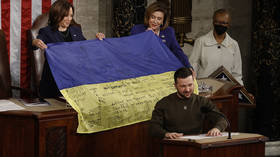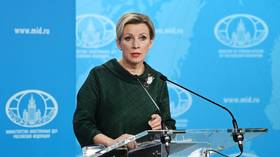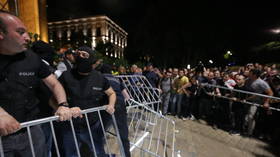Sales of low-alcohol drinks surging in Russia – data

Vodka, Russia’s stereotypical national beverage, is beginning to lose out to lower-alcohol alternatives in terms of domestic sales, according to newly released data.
Among alcoholic beverages, those classified as low-alcohol (meaning up to 9% alcohol content) were among the categories that grew the fastest in the first quarter of 2024, according to statistics shared with the media by Russia’s national alcohol and tobacco regulator. Sales in this category grew by 8.2% year-on-year, compared to just 1.6% for vodka.
However, vodka still outpaced peers in terms of total sales volumes. A total of 18.37 million decaliters of vodka were sold between January and March, compared to 4.59 million decaliters of low-alcohol drinks.
The strongest growth was registered in the category of beverages that includes whiskey and gin, which saw sales surge by 18.8% to 3.3 million decaliters. Sales in the category called ‘cognacs’, which is used in Russia to denote types of brandy, grew by 9.6% to 3.5 million decaliters.
Wine remains one of the most popular alcohol products in Russia, with 13.25 million decaliters purchased over the first quarter. Overall, sales of alcoholic beverages stronger than beer grew by 5.4% in the first quarter on a year-on-year basis, reaching over 56 million decaliters.
According to industry expert Pavel Shapkin, the growth in overall volumes is not entirely the result of increased consumption. He told the newspaper Rossiyskaya Gazeta that the uptick was mainly due to a crack-down on illegal production and sale of spirits, as well as a shift in the tourism habits of Russians. As people switch to vacationing domestically, they now buy and consume inside the country what used to be consumed abroad.












